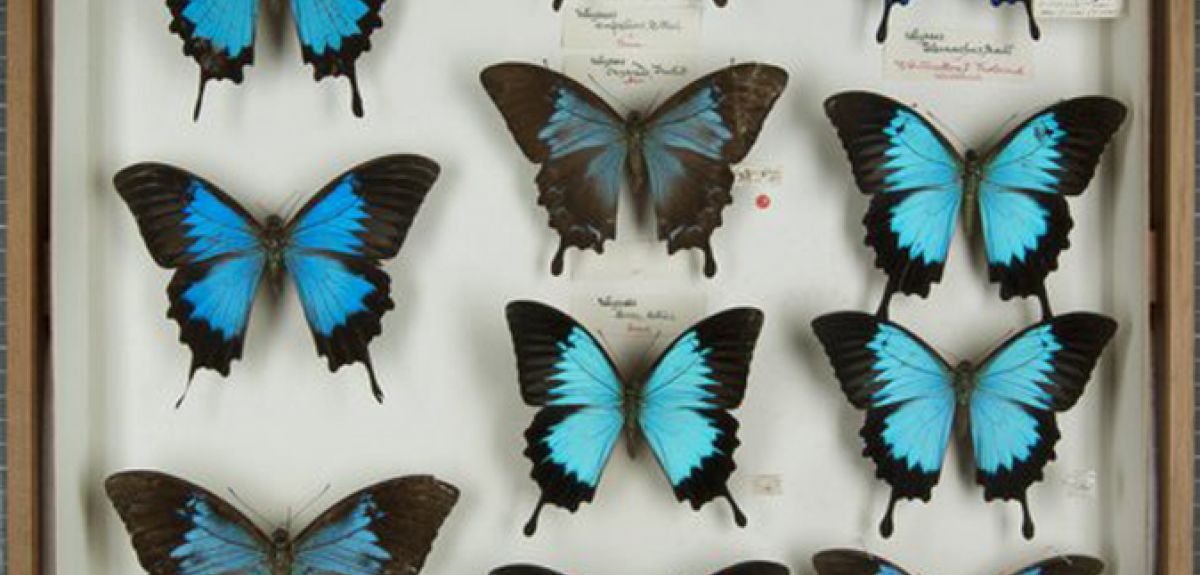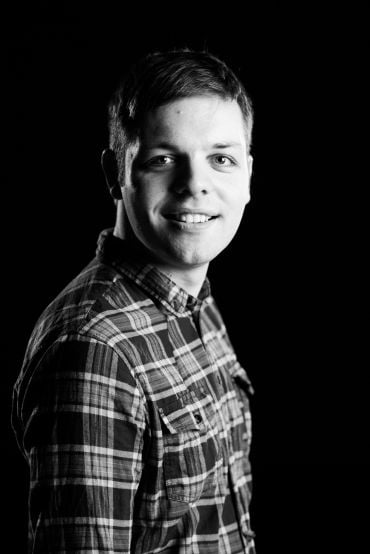
Oxford researcher is a broadcast star of the future
An Oxford researcher is among 10 scholars chosen as part of a scheme to find the academic broadcasters of the future.
 Will Abberley
Will AbberleyWill Abberley has been named as a New Generation Thinker 2014 by BBC Radio 3 and the Arts and Humanities Research Council (AHRC).
The nationwide initiative, which receives hundreds of applications from early-career academics each year, seeks out the brightest minds with the potential to turn ground-breaking ideas into fascinating programmes.
The winners will spend a year working with BBC Radio 3 presenters and producers to develop their research into broadcasts. They will make their debut appearance on the arts and ideas programme Free Thinking on Tuesday 10 June and will also have the opportunity to develop their ideas for television.
Will, a Leverhulme Early Career Fellow in English, was picked from a group of 60 finalists following a series of day-long workshops at the BBC's bases in Salford and London. He told Arts Blog about his excitement on hearing he had been chosen as a winner.
How does it feel to be named one of the BBC Radio 3/AHRC New Generation Thinkers for 2014?
Really exciting! I've always been interested in communicating research beyond the academy and this is a unique opportunity for doing that. As academics, I think it is important for us to be able to explain our work and why it matters to everybody, not just our colleagues. It's a very competitive process and the other applicants I saw were all great, so I have to say I'm pretty surprised to have been selected!
How would you sum up your research?
My current project explores the history of the concept of natural mimicry, and its impact on Victorian culture. Natural mimicry is basically when organisms pretend to be things they are not. For example, insects which are camouflaged by their resemblance to leaves, or butterflies which resemble the patterns and colours of other, inedible species in order to ward off predators. Naturalists like Alfred Russel Wallace and Henry Walter Bates were the first to argue that deceptions like these evolved through natural selection; that nature was constantly producing tricks and imitations. This idea was disturbing for two reasons. First, it disturbed religious models of a world created by a moral, truth-loving God. Second, it complicated scientific observation and objectivity, since mimicry involved imagining the mental processes of different animals as they interpreted each other's appearances in the wild. The naturalists had to put themselves in the position of predators and prey and try to see the world through their animal point of view.
I come from a literary background, so I am focusing on how naturalists used certain forms and genres of writing to communicate the controversial idea of natural mimicry to public audiences. I want to argue that the scientific travel narrative was particularly useful for this end, as it enabled the naturalists to retell the stories of their dramatic encounters with mimicry and camouflage in wild environments across the world. My research also concerns how Victorian science and literature imagined the role of mimicry and deception in psychology and sociology. Were these phenomena primitive and bestial or did they hold the key to human evolution and even civilization?
What does being named a New Generation Thinker mean for your career?
Well, humanities scholars are always keen these days to demonstrate the 'impact' of their work, and I think this will be a pretty good way to do that! I am genuinely passionate about broadcasting – between degrees, I worked as a radio journalist – and I hope to combine that passion with my academic research interests in many ways. In the longer term, I would love to make a big series on TV or radio that would enthuse wider audiences about the fascinating intersections between literature and science.